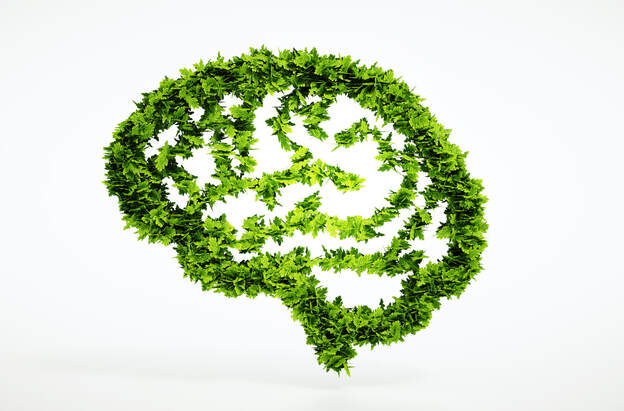
Overcoming our Brain: The Psychology behind Month-long challenges
by Livvy Drake
If you have ever started a diet, or told yourself you are never eating sugar or chocolate again, you will know how tough it can be and how all you think about is the forbidden items.
This can be the same, if you or others are trying to make lifestyle changes for the environment, like going vegan, plastic-free, giving up a car or flying.
In this blog, we will unpack the psychological factors at work and how undertaking a month challenge like Veganuary or the (40 day) Lent Plastic Challenge can achieve long-term behaviour change, so should be advocated by environmental campaigns rather than just telling people they should give things up and not understanding the psychological realities!


Habits are not conscious
The first thing to understand is that habits are not conscious but actions that the brain has automated to save thinking energy. This means that in order to change a habit, a person needs to become conscious of what they are doing and make a decision to change it and focus on embedding in new practices.
Easier said than done. If the brain has a lot on it will default to old ways.
Tip: don’t overwhelm the brain with lots of habits or tasks and choose a time when it has a reduced mental load – probably why January is a good time of the year if work and social occasions are light or during a lockdown!


Why giving something up is painful and daunting?
Loss Aversion
When we are told, or tell ourselves, that we can’t have something we experience ‘loss aversion’. And due to our human survival mechanisms, we are actually wired to experience loss twice as painfully as the joy of pleasure; so it actually hurts to give something up!
Change = Danger
The brain also doesn’t like change especially sudden drastic change, as it perceives it as dangerous and sets off the amygdala and anxiety. In the Weekend University lecture, Gabija Toleikyte, explains that to make habits last we need to change slowly without alarming the brain.
Temporal Discounting
We put more value on what’s available right now, rather than a distant and future goal. Also due to our survival instincts, we also struggle with long-term comprehension, but are more focused on the immediate future which is why, for so long, we have struggled to comprehend climate change as explained in the book ‘Don’t even think about it‘.

So how do we overcome this with a month-long challenge?
By doing a month-long challenge with incremental changes the brain can try things out, build them into a daily routine and habitualise them.
In order to do this, it’s important that one habit is replaced with another one that meets a similar need in the present moment and not in the future. Also rewards along the way, in terms of praise and recognition, are essential!
Rather than the loss, the framing for a challenge should always be about the gains and the benefits e.g. health benefits, trying out new foods. This is in contrast to talking about less CO2 when someone is missing meat, which is clearly not a short-term benefit or reward.


The importance of public commitment
As humans, we are very social creatures and we care a lot about what other people think of us, so maintaining our public persona is important. This means we have something called public commitment bias, so we are more likely to stick to it than if we just commit to ourselves.
So getting friends, family and work colleagues involved in a challenge, or joining a group will assist with this and is a crucial element of a month-long challenge. as well as knowing how many other people are taking part.

Engage people outside the echo-chamber and inspire action for your cause!
If you would like to make your campaigns more effective by applying the principles of behavioural psychology, watch our on demand workshop specifically designed to help environmental campaigners and communicators achieve greater behaviour change for the environment.
And for more tips you can always join our newsletter.

You might also like:


